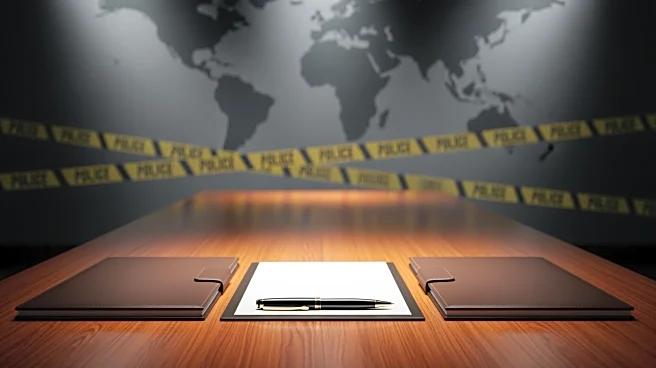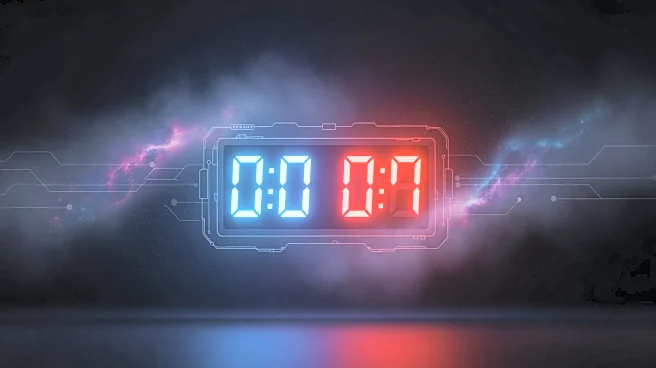What's Happening?
U.S. Defense Secretary Pete Hegseth's recent visit to Vietnam did not result in the anticipated announcement of arms sales, despite ongoing discussions about deepening military ties between the two nations.
During his visit, Hegseth met with Communist Party leader To Lam and Defense Minister Phan Van Giang, emphasizing the mutual benefits of enhanced military cooperation. However, no official announcements were made regarding major arms purchases, such as Lockheed Martin C-130 Hercules cargo planes or Boeing Chinook helicopters. The visit marked 30 years since the normalization of diplomatic ties between the U.S. and Vietnam, and two years since the U.S. was elevated to Vietnam's highest diplomatic tier, comprehensive strategic partnership. The U.S. lifted its arms embargo on Vietnam in 2016, and has since delivered several military assets, including coast guard cutters and trainer aircraft.
Why It's Important?
The absence of a concrete arms deal highlights the complexities of Vietnam's defense strategy, which involves balancing relations with both the U.S. and Russia. Vietnam's recent purchase of Russian fighter jets, despite U.S. interest in supplying military equipment, underscores potential trust issues and strategic considerations. The U.S. views Vietnam as a crucial partner in countering China's influence in the South China Sea, making the strengthening of military ties significant for regional security dynamics. The stalled arms negotiations may reflect Vietnam's cautious approach to diversifying its military arsenal while maintaining diplomatic relations with major powers.
What's Next?
Future developments may include continued negotiations for U.S. arms sales, with potential bureaucratic hurdles and strategic trust issues to be addressed. Vietnam's ongoing acquisition of Russian weapons suggests a complex geopolitical balancing act, as it navigates relations with both the U.S. and China. The U.S. may need to reassess its approach to military cooperation with Vietnam, considering the broader implications for regional security and its strategic interests in Southeast Asia.
Beyond the Headlines
Vietnam's defense strategy reflects broader geopolitical shifts in Southeast Asia, where nations are increasingly wary of U.S. policy unpredictability. The country's diplomatic gestures, such as visits to North Korea and participation in Russian military parades, indicate a nuanced approach to international relations. This strategic balancing act may influence Vietnam's future defense cooperation with the U.S., as it seeks to maintain regional stability while addressing its own security concerns.









